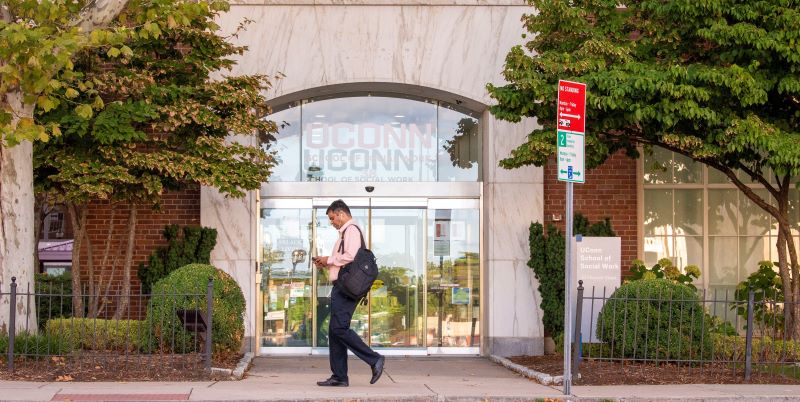
Prospective Students
The UConn School of Social Work is the no. 1 top-ranked graduate social work program in Connecticut and no. 28 nationwide, according to U.S. News & World Report. It ranks in the top 9% of graduate programs in the U.S.
Social workers change lives. Whether you are an undergraduate, a graduating college senior, a longtime social service worker, someone considering a career change or an MSW graduate interested in a doctoral degree, the UConn School of Social Work has something extraordinary to offer you. Realize your dreams, expand your knowledge and develop your skills and your vision of a more just world through our BSW Program, MSW Program, PhD Program, or Continuing Education offerings. These programs support our central mission – the promotion of social and economic justice; and the improvement of human well-being at home and across the globe – through scholarship and practice. Read more about our programs and expert faculty below.
We're Here to Help
If you have questions about our career-based curriculum, hands-on field internship opportunities, and flexible study options, contact SSW Admissions at swadmission@uconn.edu.
Explore Our Programs
![]()








